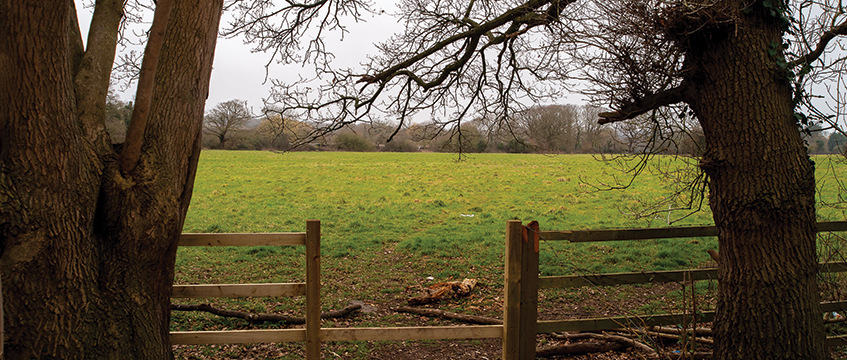The Supreme Court has held that such public rights are only extinguished if there is strict compliance with consultation requirements. Louise Clark analyses the decision.
Key points
- A statutory trust of land cannot be overreached on sale
- Strict compliance with the statutory requirements, which are for the benefit of the public, are required to extinguish a statutory trust of land
In R (on the application of Day) v Shropshire Council [2023] UKSC 8; [2023] PLSCS 43 the Supreme Court has unanimously allowed an appeal by the appellant, a local resident, quashing the planning permission granted by the respondent for the building of houses on recreation land in Shrewsbury.
The law
Land acquired and laid out by local councils as recreation grounds for residents under the Public Health Act 1875 or the Open Spaces Act 1906 is subject to a statutory trust in favour of the public who have a right to go on to the land for recreation.
Limitations have been imposed on local authorities’ powers to dispose of such land. Section 123 of the Local Government Act 1972 requires a public authority to advertise their intention to dispose of such land in a local newspaper for two consecutive weeks and to consider any objections to the disposal they receive. Compliance with such procedure frees the land from any public trust. The question raised by the appeal was what happens to the public’s right to use the land where the local authority fails to comply with the consultation procedure.
Section 128 of the 1972 Act provides that a disposal of land subject to the consultation requirement shall not be invalid because the requirement had not been complied with and the purchaser need not be concerned to see or enquire as to whether such requirements have been complied with.
The background
The case concerned the Greenfields Recreation Ground in Shrewsbury, which was acquired by Shrewsbury Borough Council in 1926 following a petition by local residents for playing fields. Small parts of it were used historically as allotments and then a tree nursery. In 2010, the land, registered as Greenfields Recreation Ground and Allotments was transferred to Shrewsbury Town Council. In October 2017, the council sold the land to CSE Development (Shropshire) Ltd. It was not aware of any statutory trust so the consultation procedure under section 123 of the 1972 Act was not followed. CSE subsequently sought, and the respondent granted, planning permission to build 17 houses together with a new access road and associated parking on the land despite considerable opposition from local residents.
The appellant was unaware of the disposal of the land by the council but became aware of the application for planning permission. He investigated the long history of the recreation ground which he thought established that the land was subject to a statutory trust for the benefit of the public under either the 1875 or 1906 Acts. He brought judicial review proceedings challenging the grant of planning permission arguing that, as the consultation provisions were not complied with, the land remained subject to the statutory trust and the respondent had failed to consider it when granting permission.
At first instance his application was dismissed. The court considered that even if the public rights under the trust survived the sale, section 128 of the 1972 Act operated so that the rights were unenforceable against CSE unless the advertising and consideration of objections requirements had been complied with. The provision protected both the validity of the sale transaction and the buyer from the need to inquire into the local authority’s compliance with section 123. Had the respondent considered the status of the land it would have concluded that the rights under the statutory trust could not be enforced against CSE and the outcome of the planning application would not have been substantially different. Consequently, it was not appropriate to grant relief.
By the date of the Court of Appeal hearing, the parties agreed that the land was subject to a statutory trust for public recreation, that CSE was not aware of it and that, by not complying with section 123, the council had acted unlawfully. However, the Court of Appeal decided that section 123 had to be read with section 128, which was expressly for the protection of purchasers, and whether the authority inadvertently or knowingly disposed of the land without complying with the statutory requirements did not matter. Section 128 overcame any argument that the disposal was void because the authority had no power to make it.
The decision
The Supreme Court disagreed. The public trust of recreation land created by the 1875 and 1906 Acts is not akin to a private trust. The simple transfer of the land into private ownership was insufficient to extinguish the trust otherwise the restrictions and conditions attached to the sale under sections 123 and 128 would be very easily circumvented. The public rights were analogous with public rights in town and village greens and over public highways, which clearly survive the transfer of control to private ownership.
Parliament used very clear words in settling, and amending, the provisions of section 123 to enable the public to have the opportunity to learn about and object to a proposed sale of recreation land. It was only if those provisions were complied with that the public’s rights under the statutory trusts created by the 1875 and 1906 Acts were extinguished. Section 128 provided a useful general protection for those dealing with public authorities but could not be used to override a statutory trust where a local authority had not complied with the bespoke procedure set out in section 123. Allowing the appeal, the Supreme Court quashed the grant of planning permission. The statutory trust of the land continued and was enforceable against CSE.
Louise Clark is a property law consultant and mediator









